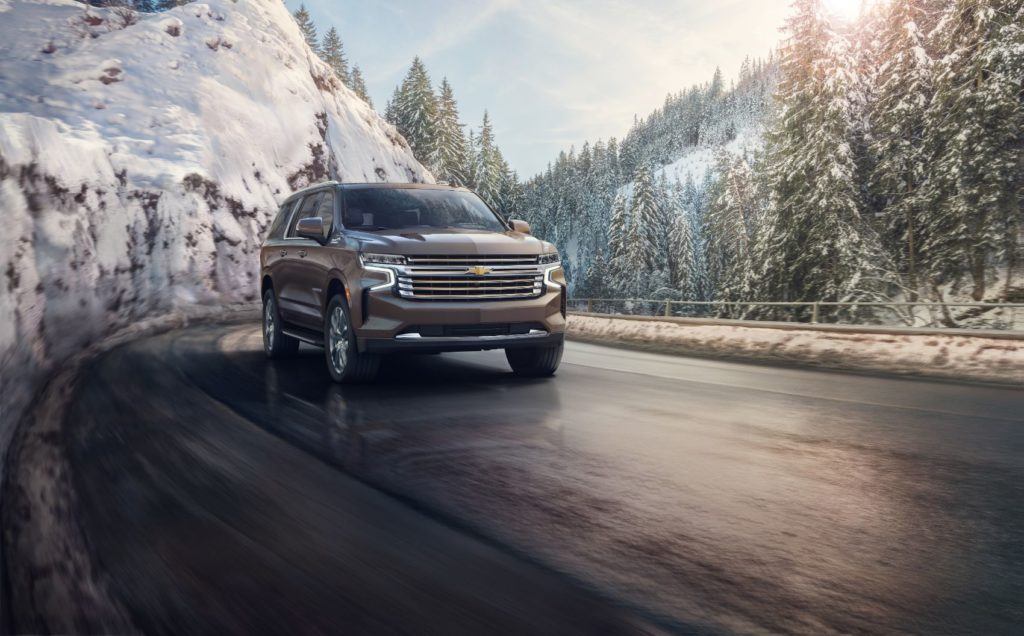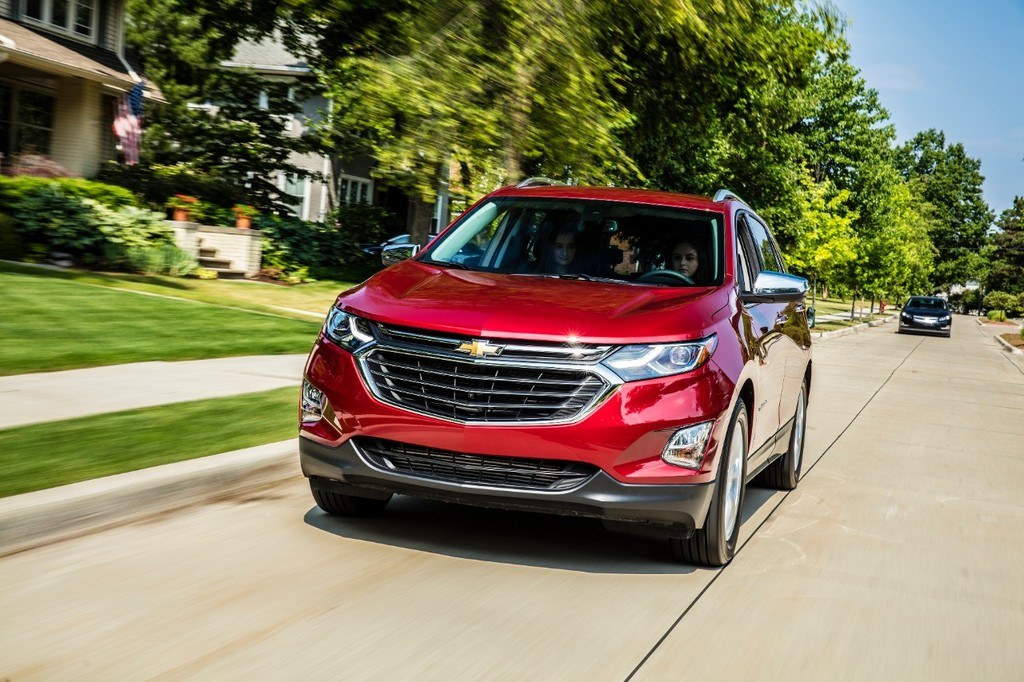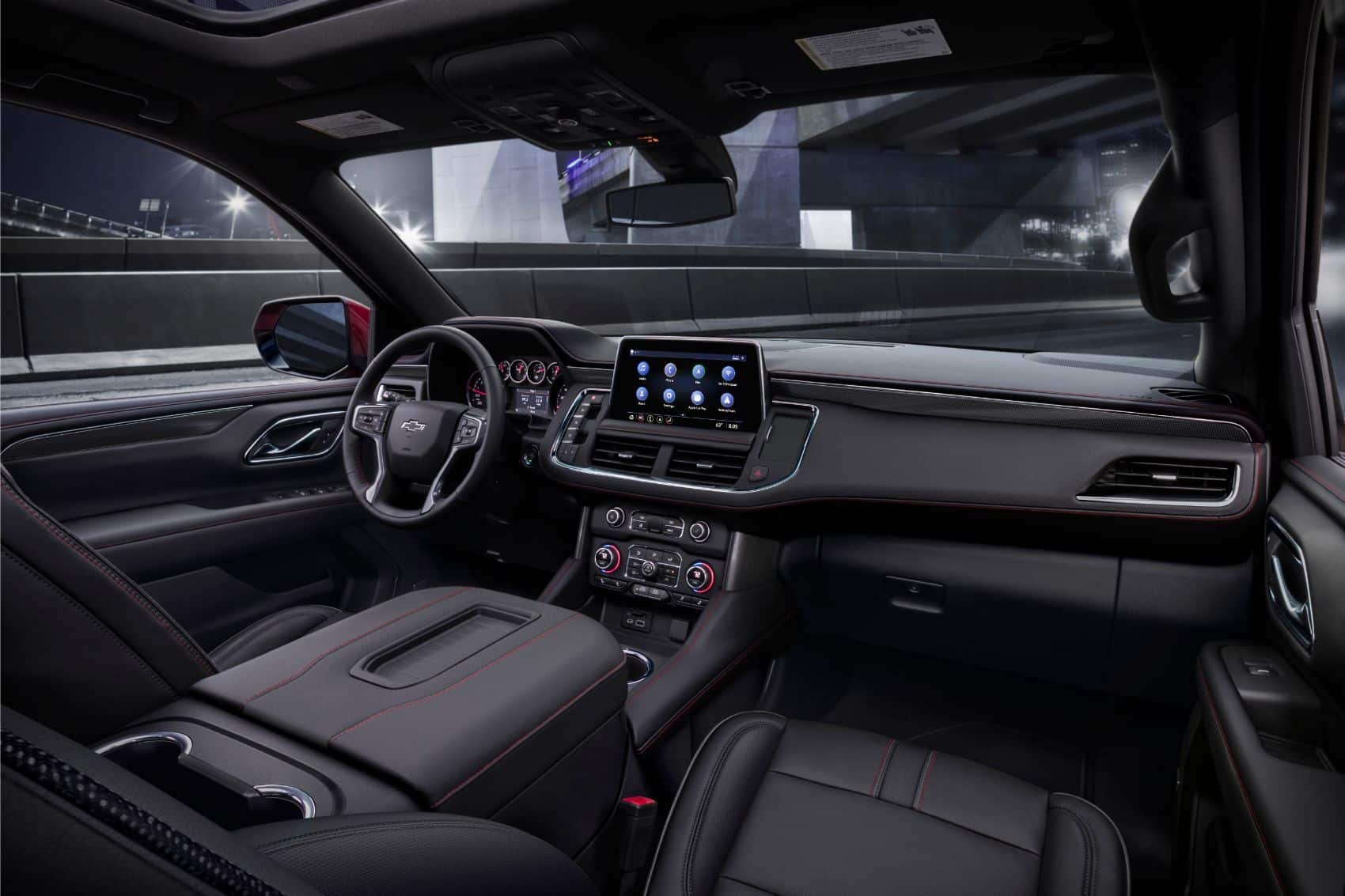Affiliate Disclosure: Automoblog and its partners may earn a commission if you purchase coverage from the extended warranty providers outlined here. These commissions come to us at no additional cost to you. Our research team has carefully vetted dozens of extended warranty providers. See our Privacy Policy to learn more.
- Many Chevy models have luxury-like prices, but the standard warranty protection does not match luxury brands.
- Chevrolet reliability gets mixed reviews from different sources.
- Chevy offers the choice of both a true extended warranty and an extended service contract.
Chevrolet is unique in the auto industry in that its vehicles cover a price range from $13,220 for the tiny Spark economy car to $123,000 for the 200-mph Corvette ZL1. Chevy pickup trucks – its most popular vehicles – and the Suburban SUV can drive into the $70,000-plus range with options, putting them deep into luxury-vehicle territory.
Yet, the Chevy warranty falls short of luxury-brand coverage. That’s one reason to consider adding an extended warranty, either from Chevrolet or one of our recommended aftermarket providers. We’ll take a closer look at Chevy’s offerings and also suggest alternatives from our list of the best extended car warranty companies.
Chevy Warranty by The Numbers
| Warranty Coverage | Term |
|---|---|
| New vehicle limited warranty (bumper-to-bumper warranty) | 3 years/36,000 miles |
| Powertrain | 5 years/60,000 miles |
| Powertrain (1500 Series Light Duty pickups and 2500 and 3500 Series Heavy Duty pickups with optional diesel engines) | 5 years/100,000 miles |
| Powertrain – Bolt electric vehicle (including EV battery) | 8 years/80,000 miles |
| Emission controls (performance) | 2 years/24,000 miles |
| 24-hour roadside assistance | Varies |
| Emission controls (defects in materials or workmanship) | 3 years/36,000 miles* |
| Emission controls (catalytic converter and powertrain control module) | 8 years/80,000 miles |
*These intervals are longer for certain diesel-powered trucks, vehicles sold in California, and states that follow California’s vehicle emissions regulations. Always check your vehicle owner’s manual for more information.
Chevrolet also provides the first scheduled vehicle service within the first year or 12,000 miles – it’s basically an oil change, tire rotation, and vehicle inspection. With the Chevy warranty, coverage transfers to a new owner if you sell the vehicle during the warranty period.
Chevy’s Tire Warranty Bonus
Like its mainstream archrival, Ford, Chevy covers tires with a separate warranty in addition to the warranty provided by the tire manufacturer. Also like Ford, Chevy reimburses 100 percent of the cost for a defective tire for one year/12,000 miles. After that, reimbursement is on a pro rata schedule, ending at 36,000 miles in Chevy’s case.
That’s for the price of the tires. Regardless of how much Chevy reimburses the customer for replacing defective tires, mounting and balancing are covered completely by the three-year/36,000-mile warranty.
This may seem like a small perk, since the tires are already covered by the tiremaker’s warranty, but there are benefits to Chevy’s coverage. For one, it may be more convenient to go to a Chevy dealer than one of the tiremaker’s authorized dealers. Also, if a tire was damaged, the Chevy dealer can inspect for possible suspension damage, which would also be covered by the Chevy new vehicle warranty.
Roadside Assistance
Chevy’s roadside assistance covers the following:
- Jump-starts for a dead battery.
- Mobile EV charging in select markets.
- Lockout service when keys are accidentally locked inside the vehicle.
- Emergency towing from a public road or highway to the nearest Chevrolet dealer.
- Emergency fuel delivery of enough fuel for the vehicle to get to the nearest gas station.
- Flat tire change when equipped with a properly inflated spare tire, or providing Tire Inflator Kit Service if equipped with that feature.

Is The Chevrolet Extended Limited Warranty a Good Option?
In many cases, the term “extended warranty” is used interchangeably with “extended service contract,” but there are differences. Chevrolet is among several brands that offer a true extended warranty option, called the Extended Limited Warranty. This quite simply extends the new vehicle bumper-to-bumper warranty from three years/36,000 miles to five years/60,000 miles to match the term of the powertrain limited warranty.
The Chevrolet Extended Limited Warranty is available for new 2018-2020 models, but only at the time of vehicle purchase. There is no deductible for the added coverage. As with the standard bumper-to-bumper warranty, the optional Extended Limited Warranty transfers automatically to the new owner if you sell the vehicle during the warranty period.
Pricing for the Chevrolet Extended Limited Warranty is available from the dealer. Because you have to decide on this option when you purchase the vehicle, you’re not going to have a chance to compare costs to a third-party extended service contract, such as from one of our recommended providers.
If you think you might want this option, you could try asking a Chevy dealer about it before you purchase a car, but get any price quotes in writing. Before you do that, get a price quote for a service contract from one of our recommended third-party warranty companies. Then, you’ll have some price reference points when a Chevy dealer offers the extended warranty.
Chevrolet’s Platinum Protection Plan Service Contract
If you decline the Chevrolet Extended Limited Warranty, you could later purchase the Chevrolet Platinum Protection Plan. This is more directly comparable to top-tier aftermarket service contracts.
The Chevrolet Platinum Protection Plan is a comprehensive service contract that covers 1,000-plus components and has a deductible. Pricing varies by vehicle and terms. As one example, we priced a plan for a 2019 Equinox, Chevy’s popular crossover, equipped with optional all-wheel drive. Chevrolet will let you get a price online and download a sample contract.
Using Chevy’s online tool, we set the conditions at under 30,000 miles and still covered by its original warranty. Contract pricing for this vehicle ranges from $1,845.85 for two years/24,000 miles to $3,437.10 for five years/60,000 miles. Other Chevy models will differ.
While the plan essentially covers the whole vehicle and powertrain, there are some exclusions to coverage, including:
- Key fobs
- Trim items
- Wheels and tires
- Tire pressure sensors
- Maintenance services
- Headlights and lenses
- Brake rotors and drums
- Battery and battery cable/harness
- All exhaust components (unless listed as a specific covered part)
Certain emission controls are also not covered, including those related to the exhaust gas recirculation (EGR) and gasoline vapor-control systems.
The Chevrolet Platinum Protection Plan includes several other benefits:
- Towing and road service reimbursement provides up to $150 per incident.
- Trip interruption up to $200 a day, for a maximum of $800 per incident if your vehicle breaks down more than 100 miles from your home and a repair facility needs to keep the vehicle overnight.
- Rental car coverage up to $40 per day (maximum $280 per visit) for expenses to rent a replacement vehicle or for alternate public transportation expenses while your vehicle is being repaired. You must submit the receipts to get reimbursement.
- Lost key lockout service is available if you lose or break your vehicle’s key, or accidentally lock it in the vehicle, you can be reimbursed up to $35 for locksmith services. (We doubt that $35 would fully pay for a locksmith’s service, so be prepared to pay some of your own money.)
The Chevrolet Platinum Protection Plan is transferable for a fee. You can cancel the plan within 60 days and receive a full refund if no claims were filed. After that period, you’ll receive a pro-rata refund minus claims paid.

How Reliable Are Chevys?
There are mixed reviews of Chevrolet reliability. In the 2020 J.D. Power U.S. Vehicle Dependability StudySM, Chevrolet placed among the top 10 brands out of 32 studied, with 123 problems measured per 100 vehicles. Compare that with Buick, another General Motors brand with 103, Toyota (113), and Ford (126). Chevy also came out ahead of Hyundai and Kia (both with 132) and Honda (139).
According to Consumer Reports, the reliability picture for Chevy is not as rosy. The magazine’s own three-year reliability study, which takes input from 420,000 car and SUV owners, ranked Chevrolet 25th out of the 30 brands it included. Consumer Reports cited the Colorado pickup as the brand’s least reliable model and the Tahoe SUV as its most reliable. At least on the Tahoe, Consumer Reports and J.D. Power seem more closely aligned.
According to Chevrolet’s own marketing information for its Platinum Protection Plan, repair costs can be expensive. Here are examples, based on Chevy’s actual claims experience:
- Engine: $6,952
- Fuel pump: $972
- Water pump: $600
- Transmission: $3,622
- Air conditioning system: $1,136
- Rack and pinion steering system: $1,355
You can also research specific repair costs at RepairPal. We looked at a few for the 2018 Chevrolet Malibu:
- Starter: $307 to $1,074
- Alternator: $523 to $808
- Fuel pump: $588 to $1,144
- Cylinder head gasket: $1,167 to $2,828
Third-Party Warranties: Greater Selection & Solid Value
Right off the bat, a key benefit of a third-party extended warranty is that you do not have to buy it when you purchase a new, used, or certified pre-owned Chevrolet. According to global research firm IHS Markit, the average age of cars on the road is now nearly 12 years old and has been trending upward over the last five years.
More people are buying extended warranties and service contracts for that reason. Also, with car loan length also increasing, people don’t want to be hit with a big repair bill while they’re still making monthly payments for the car.
Not every car owner needs or wants the same level of coverage, however. An aftermarket plan, such as from Endurance or CARCHEX, can offer more flexibility than the factory extended warranty products. In this particular case, there are five levels of coverage available, from powertrain coverage, to all-encompassing bumper-to-bumper coverage. For many car owners, a mid-level plan offers solid value.
You’ll find plans from our recommended providers available for new, used, and CPO Chevys. You can choose to buy the warranty when you buy the vehicle, or wait until you’ve lived with it for a while. You can even buy a third-party warranty after all factory coverage has expired, including for high-mileage cars.
Other benefits of third-party extended warranties include:
- Flexible payment options.
- Multiple deductible choices.
- Towing and rental car reimbursement.
- 24-hour roadside assistance with reimbursement for trip interruption.
- Service available from approximately 30,000 certified repair facilities throughout the U.S. (compared to using only Chevrolet dealers when you buy a Chevy warranty).
Call one of our recommended warranty providers today and start your research before visiting a dealer. Get a free price quote and a sample contract to review.
FAQ: Chevrolet Platinum Protection Plan
Is there a deductible for Chevy’s service contract?
You can choose a $0 or $100 deductible, or a $100 disappearing deductible. The latter means you won’t pay the deductible if you have a covered repair performed at the dealer where you bought the car.
Does this contract apply if I use the vehicle for business?
If you use a Chevy truck for jobsite activities, delivery, service or repair work, farming, ranching, route work, or snow removal, you can pay a commercial-use surcharge when you buy the contract. This does not apply to ride-sharing services, such as Uber or Lyft. Using a vehicle for these services is likely to void most brands’ vehicle warranties.
Can I buy this plan for my Chevy after the original warranty has expired?
Yes, you can purchase the Chevrolet Platinum Protection Plan for a vehicle up to seven years old or with up to 84,000 miles.
Is the Platinum Protection Plan available for used vehicles?
Yes. See your Chevrolet dealer for details and pricing.
Our Methodology
Our expert review team takes satisfaction in providing accurate and unbiased information. We identified the following rating categories based on consumer survey data and conducted extensive research to formulate rankings of the best extended auto warranty providers.
- Affordability: A variety of factors influence cost, so it can be difficult to compare quotes between providers. Our team performs ongoing secret shopper analyses for different vehicles, mileages, warranty plans, and locations to give this rating.
- Coverage: Because each consumer has unique needs, it’s essential that a car warranty company offers an array of coverage options. We take into account the number of plans offered by each provider, term limits, exclusions, and additional benefits.
- Industry Standing: Our team considers Better Business Bureau (BBB) ratings, availability, and years in business when giving this score.
- Customer Service: Reputable extended car warranty companies operate with a certain degree of care for consumers. We take into account customer reviews, BBB complaints, and the responsiveness of the customer service team.







